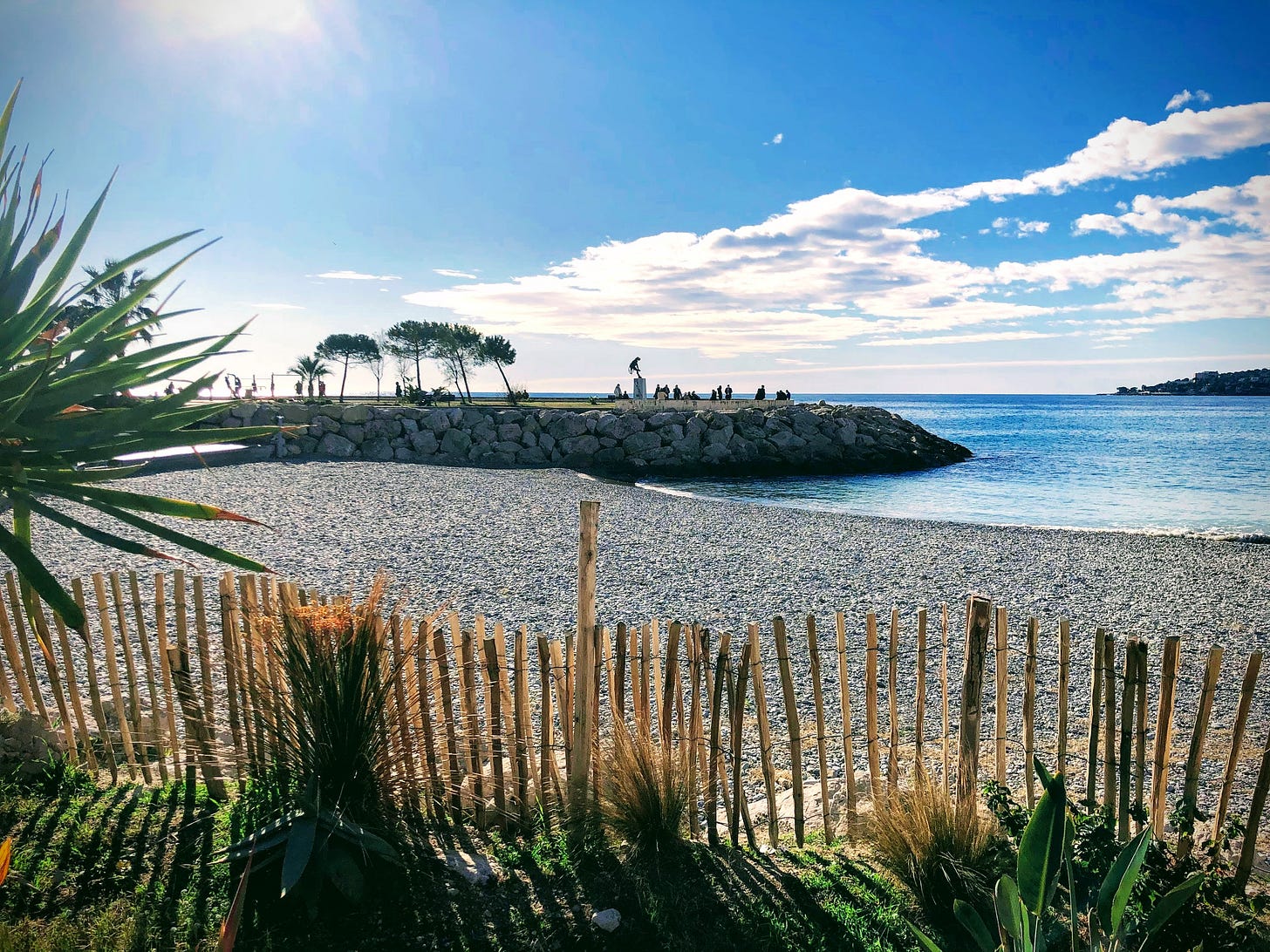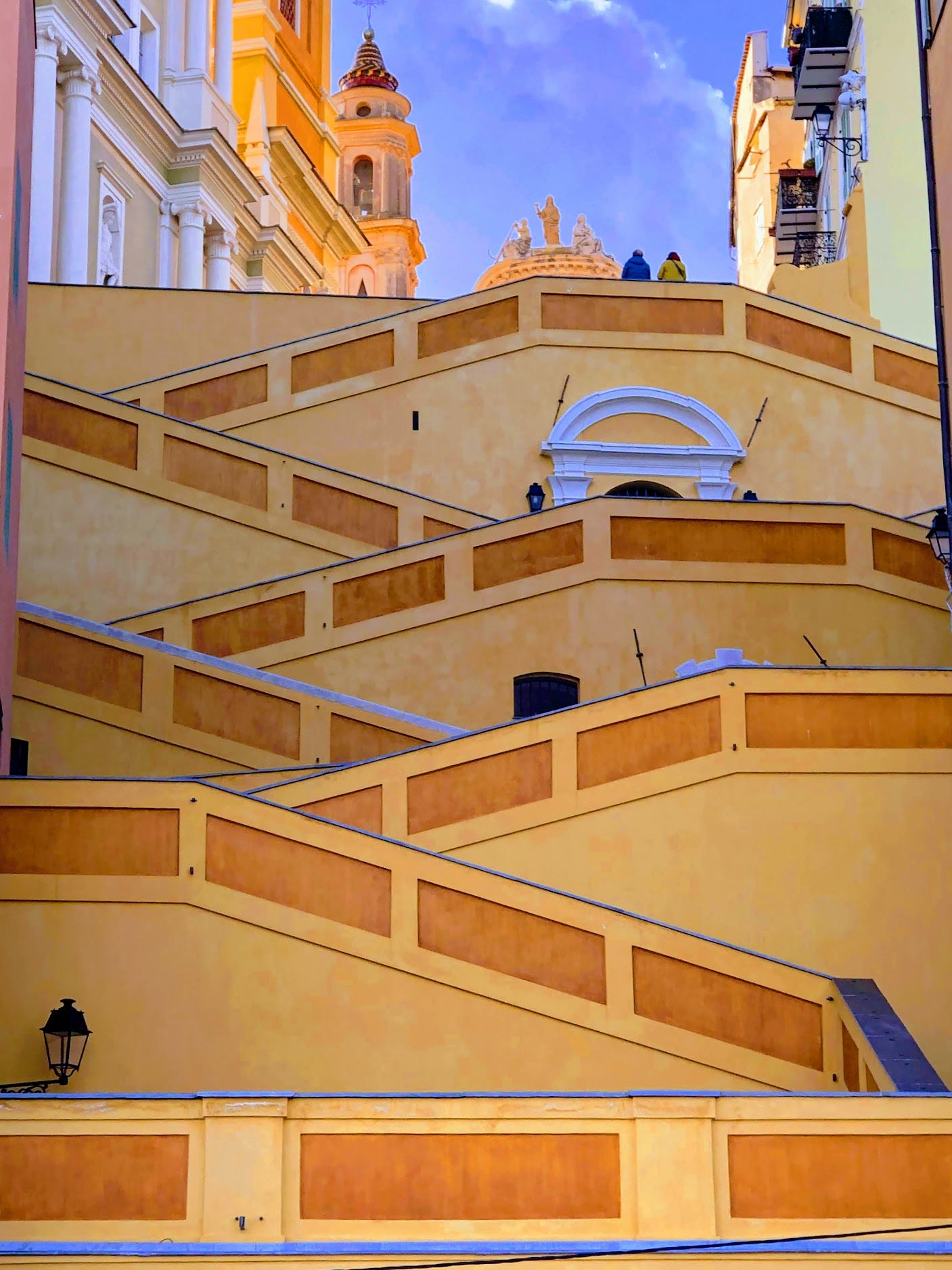I’m having the interesting experience of an unmediated life, and this must be what it feel likes for all those who simply don’t follow the news that much.
It is like living in a different world.
That is to say, because my French is not up to it, I can’t really immerse myself in the daily news here—the way I do in Australia and have done for years—and I’m limited to a few English-language outlets or the odd piece I can be bothered getting Google to translate for me.
The net effect is strangely calming.
But let me try and give you some idea of how things are playing out here and what it is like day-to-day.
On the surface, the figures are not great.
France is recording in the vicinity of 300,000 new cases a day (which is per capita less than Australia, I think…?). The ICU occupancy rate for the country is 78%, but in our region, Provence Alpes Cote D’Azur, ICU occupancy is running at 114%, so it wouldn’t be a good time to get seriously ill.
Official figures have been showing that 90% of the population is vaccinated, and this reflected the fact that 90% of those over 16 had had two shots.
As of yesterday, however, they changed the criteria, and the official figure is now based on those over the age of five who have had three shots. That figure currently sits at 77%, which strikes me as pretty good.
You probably saw reports of President Macron saying that his intention was to make things as hard as possible for the unvaccinated. He actually said (depending on your translation), “…as for the non-vaccinated, I really want to piss them off. And we will continue to do this, to the end. This is the strategy.”
The interesting thing is that the pushback he got from his political opponents was mainly to tone police him, that is, they didn’t really challenge him on the “policy” so much, as on his language.
Very unpresidential; for shame.
Anyway, my impression is that his comments won't do him much harm. And what’s more, the policy is working: not just pissing off the unvaccinated but encouraging people to not be amongst their number.
Sure, there are anti-vax, anti-pass sanitaire protests, but like Australia, the frequency of their appearance in public overstates the level of their support.
Public compliance with masking remains extraordinarily high (in Nice and in all the other places down south we have visited). I’ve mentioned before that when we first arrived, the likelihood a restaurant or cafe would ask to see your pass sanitaire was about 50%, but over the last few weeks that has noticeably increased. It has always been 100% likelihood in cinemas and galleries and that remains the case.
I don’t think many people care about “pissing off” the unvaccinated.
But the thing to note—and this is the most important thing—is that all of this is happening in an environment where it is fairly easy to get tested, and testing is free (for locals), whether they are PCR or rapid antigen. It is easy and free to get jabbed, one, two, or three. The pass app works: it updated very smoothly after we got our third jab. And you can easily buy autotest kits in pharmacies and supermarkets.
The bottom line is that if you expect people to 'live with Covid', it helps if you provide the means for them to do so. D'uh.
And that’s what it feels like here, that despite the surging numbers (which may well be peaking as we speak), there is a sense of order and control in what is happening and that you can therefore get on with things.
There are, for example, absolutely no sign of food shortages, no empty shelves, and no queuing or rationing or panic buying.
I am happy to report, in particular, that the baguette industrial complex continues to fill supermarkets and les boulangeries with their wares first thing every morning.
Quel soulagement!
Having said that, we are definitely more reticent to go out, and much more cautious when we do so. We have booked our return flights—for January 28!—and the last thing we want is to get infected in the next few weeks and put that travel at risk.
So, we home test regularly, have transferred to better-quality masks, and have cut back on day trips.
When I think back to when we first arrived, after leaving a Melbourne lockdown and arriving in an open city bustling at the height of summer holidays, and the shock of that and the trepidation that it caused, it is simply incredible how much has changed.
Then, France seemed threatening and Australia seemed safe, and now it feels like that has completely reversed.
Is this a case of the devil you know, or has the situation in Australia really degenerated to the extent legacy and social media reports suggest? I guess we are about to find out.
Apart from anything else, we are talking about bringing home RAT kits with us and packets of N94 masks, which we hear are also in short supply back home. We are preparing ourselves to shop like preppers, laying in canned goods and batteries, just in case.
Has it really got to that point?
All of this highlights again, not just how Covid has changed all our lives and exposed the divides in our societies, but the extent to which we now live with a level of background uncertainty that simply wasn’t there before. And how it inevitably sucks us into a deeper web of technological driven surveillance.
We need better responses, and maybe that will begin, for me anyway, in reassessing my consumption of so-called news. How much of it is necessary, a way of staying informed—as I have always told myself—and how much of it is a kind of metaverse, creating a version of reality that I don’t really need to engage with?
Take care, everyone.
POSTSCRIPT
We wanted to thank everyone for their kind messages about Tanya. She has recovered from the flu or whatever it was and is doing well, with only a nagging cough hanging around.
Also, one of the other things I will write about at some point is the number of Australians we have met here, or French people who have spent time in Australia, and all the lovely things they say about their visit.
Our most recent encounter was at the Cocteau Museum in Menton, a few stops along the coast. The woman at the ticket counter asked us where we were from and when we said Australia, she slipped from her perfect French into perfect Strine, and said, geez, g’day, mate. Turned out, she was from Melbourne, of French/Australian parents, and had moved to the Cote D’Azur twenty-five years ago. We had a lovely chat, but the best thing was she told us about the Cocteau Wedding Room, which is part of the municipal offices in the main part of town. She said it was probably closed, but if we asked at the office, they would most likely let us in.
And they did!
These snaps are Menton old town, bursting with colour on a beautiful day, and then the interior of the wedding chapel, which, incidentally, is still in use, in case you were looking for somewhere to get married.











When I saw the subject line I assumed this was going to be the story this this week of thé baguette industrial complex fighting back against the scandal of 25c baguettes ….
The shitshow with the RATs etc has added a layer of anger and despair to everything I don’t think we had before. And also the gap between before and now - 50 cases a day used to be an emergency now we have 60,000. I didn’t know anyone who had it in the first two years but now I know multiple people. This gap is probably not as big as in France between their previous worst and now.
Excellent piece again Tim. Your Menton pictures are causing me quite some reflection - must have passed through a good 3 or 4 dozen times between Genoa and Cannes, and never stopped off. Will rectify upon return!
We've been absolutely blessed to have a season of Cocteau films here at the Cinematheque, like being injected with that extraordinary imagination. Cannot wait to get back to France and dig in again.
With regard to your closing sentences, it will indeed be some kind of experience returning here. And making an assessment on media choices. As you're well aware, various publishers posted their flags for a fixed position on COVID strategies early on. And there's been little variation - and it's been two bloody years - which to be fair, no-one expected.I've been totally puzzled by the endless images of empty supermarket shelves There's abundant supply of everything where I shop. But last weekend, Nine media ran an interesting piece on supply chains. Turns out the independents rely on an entirely different chain to the corporates. Quelle surprise? Little cracks, schisms and variations all over the place.